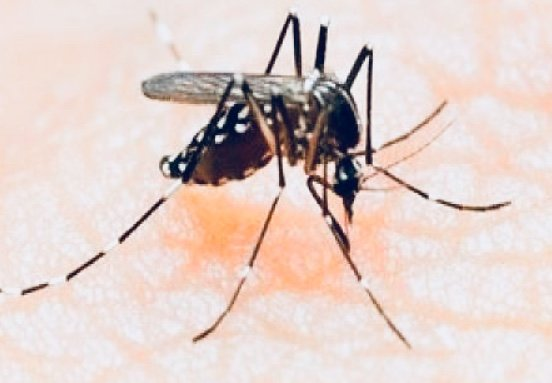Mosquitoes could be considered carnivores, maybe not in the most common sense where their primary diet is meat, but female mosquito species feed from blood for nourishment of their eggs. Mosquitoes are known to ruin many back yard and outside activities and can have you running for the inside as soon as dusk (or earlier) hits to avoid becoming their evening meal. And, for good reason due to the diseases that they carry and the uncomfortable welts they leave on the skin from their bites. Mosquitoes were even recognized as being one of the most dangerous animals (according the World Health Organization) to humans in 2019, killing approximately 1 million people a year.
Mosquitoes
ALL ABOUT DELAWARE MOSQUITOES
Mosquitoes are transient flyers and can travel distances of anywhere from 300 feet up to 3 miles depending on the type of mosquito. The Black Salt Marsh mosquito has been known to fly up to 30 miles. Mosquitoes are actually not known to be the most avid flyers, and in the flying insect world, would probably be considered slow. However, mosquitoes have the innate ability to swoop in unnoticed and bite you without your knowledge and then retreat just as you become aware of them. Common mosquito bite areas include places you are less likely to notice such as at the ankles, back of the neck, knees and arms. Unlike ticks and bedbugs, mosquitoes do not eat or feed off your blood. As a matter a fact, only the female mosquito will bite and she does so in order to get nourishment and protein for her eggs, not as a meal. Female mosquitoes will also bite animals to obtain the blood she needs including dogs, cats, horses and birds so be sure to protect your animals especially during the evening hours. Female mosquitoes use four main methods in which to locate a host. They are attracted to the carbon dioxide that we breathe out or exhale, heat from our body (thermal), our perspiration (lactic acid) and body odor and movement. Similar to the assassin bug, the mosquito does not actually bite, she uses a needle-like proboscis to stab the skin where she will then be able to suck the blood to store for reproductive purposes.
Mosquitoes are most prevalent during the evening hours from dusk to dawn, however, there are some species such as Aedes that are active during the day. Mosquitoes also enjoy temperatures of 80 degrees or higher and like humid, moist weather conditions. Mosquitoes usually make their appearance in April based on the weather and will remain active until cooler weather, which is usually September or October.
MOSQUITOES IN DELAWARE & RISKS
There are over 3500 different mosquito species spanning the world, however only an estimated 57 species (according to Delaware DNREC) are located in Delaware. Of these 57 mosquito types, there are approximately 19 species that are considered high risk or problematic. Delaware, known for its many water ways, marshes, ponds and woodlands, is home to several mosquito species including several types of salt marsh mosquitoes, the asian tiger mosquito, the common house mosquito, floodwater mosquito and woodland pool mosquito. Asian tiger mosquitoes, known to bite in the daytime, are the most commonly found mosquito in Delaware backyards. Many of these mosquitoes are known carriers of the West Nile Virus.
Unfortunately, in Delaware, there are several diseases carried by mosquitoes that can be potentially transmitted to humans and animals through the mosquito bite. Delaware mosquito borne diseases include West Nile Virus, as well as Chikungunya Virus, Eastern Equine Encephalitis Virus and most recently the Zika Virus. Canine Heartworm is also a disease that is spread by mosquitoes to dogs that can pose serious health risks to our canine friends. West Nile Virus has been reported in all U.S. states. Common symptoms and complications of mosquito-transmitted diseases are encephalitis, meningitis, brain damage, anaphylaxis, joint pain, rashes and flu like illnesses. Other diseases spread from mosquitoes include Dengue Virus, Malaria, Yellow Fever, Rift Valley Fever, and the Keystone Virus, however, they have not been reported or are not prevalent in Delaware.
HOW TO GET RID OF MOSQUITOES
To keep mosquito populations low around your home or to help get rid of mosquitoes, it is essential that you remove all standing or stagnant water in order to eliminate possible mosquito breeding areas. Empty regularly and after each rainfall all flowerpots, buckets, birdbaths, trash containers, pool or boat covers, tarps and any other items that hold water. Clean gutters, a common breeding area for mosquitoes, regularly so that water and debris is not trapped. Mosquitoes spend three of their four life stages in water and only need ½” to 1” inch of water to survive so removal of potential breeding sites are key to reducing mosquitoes in your yard. For times when you have to be outside, it is recommended that you avoid the evening at dusk and early mornings, however, there are some mosquitoes, in particular the Aedes species, that are unfortunately out during the daytime hours. If you have to be outside, apply an insect repellent and wear long sleeves. Be sure to seal any screens and windows of your home to keep mosquitoes from entering. Use of a fan at close distances may also help deter mosquito activity due to their poor flying skills & the dispersement of carbon dioxide.
Integrity Pest Solutions offers seasonal mosquito services for both home and businesses so that you can enjoy your yard this year. All services include a direct, targeted exterior treatment of the property and is available as a seasonal service or as an event service. Home Owner Association or multi group discounts available for seasonal mosquito services.
TIPS: Empty all flowerpots, buckets, bird baths regularly and after every rainfall.

